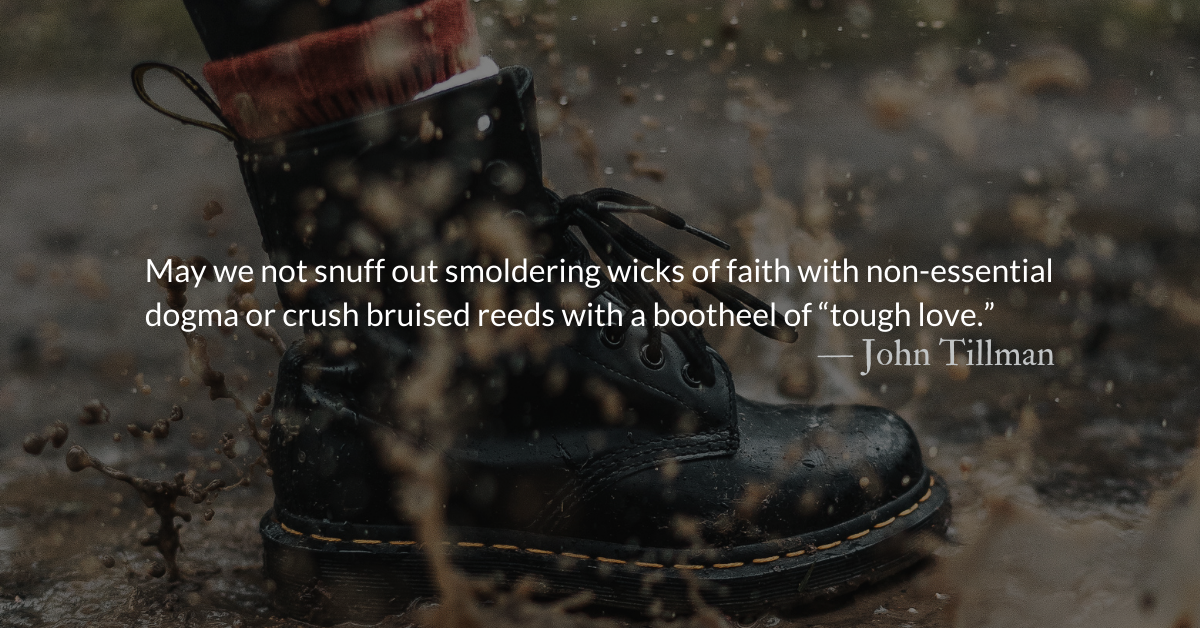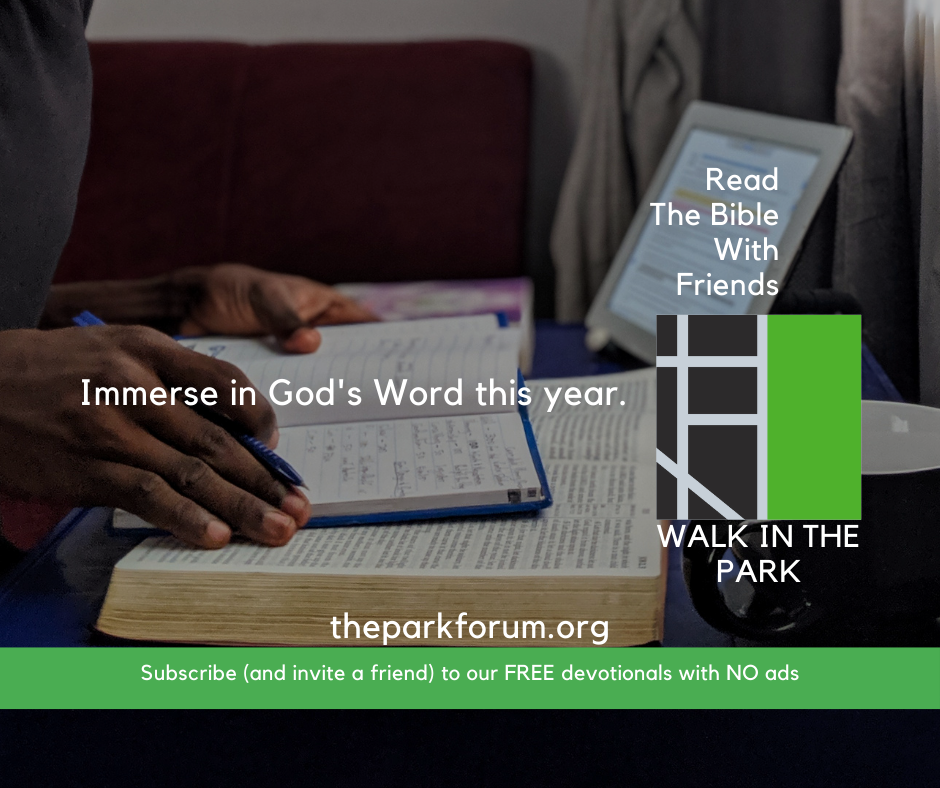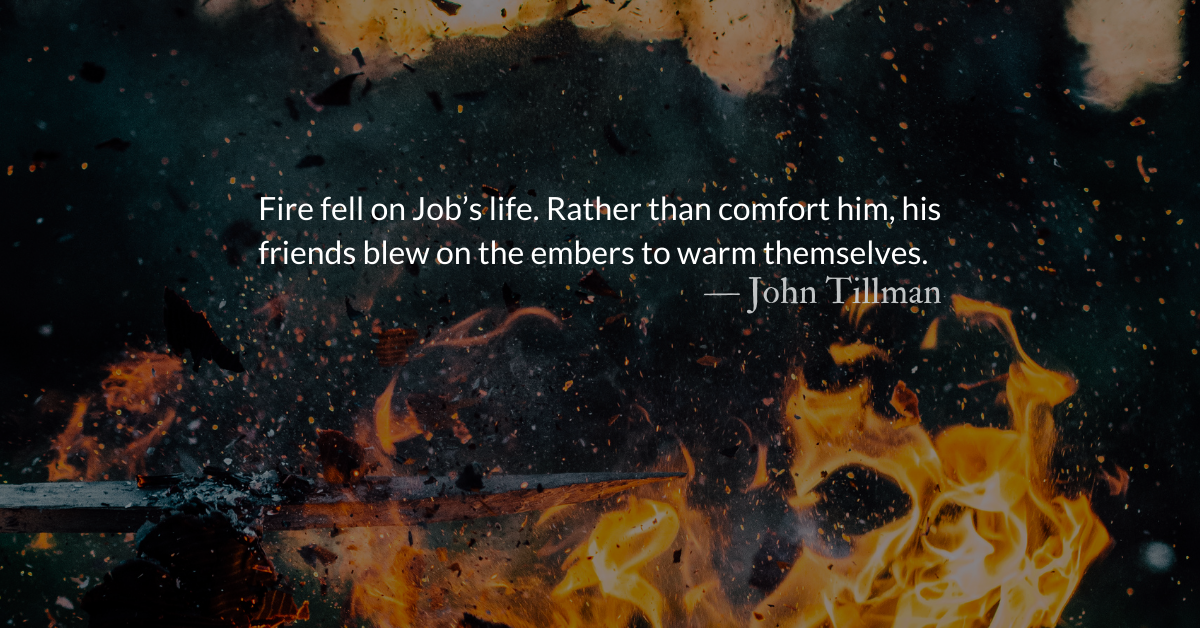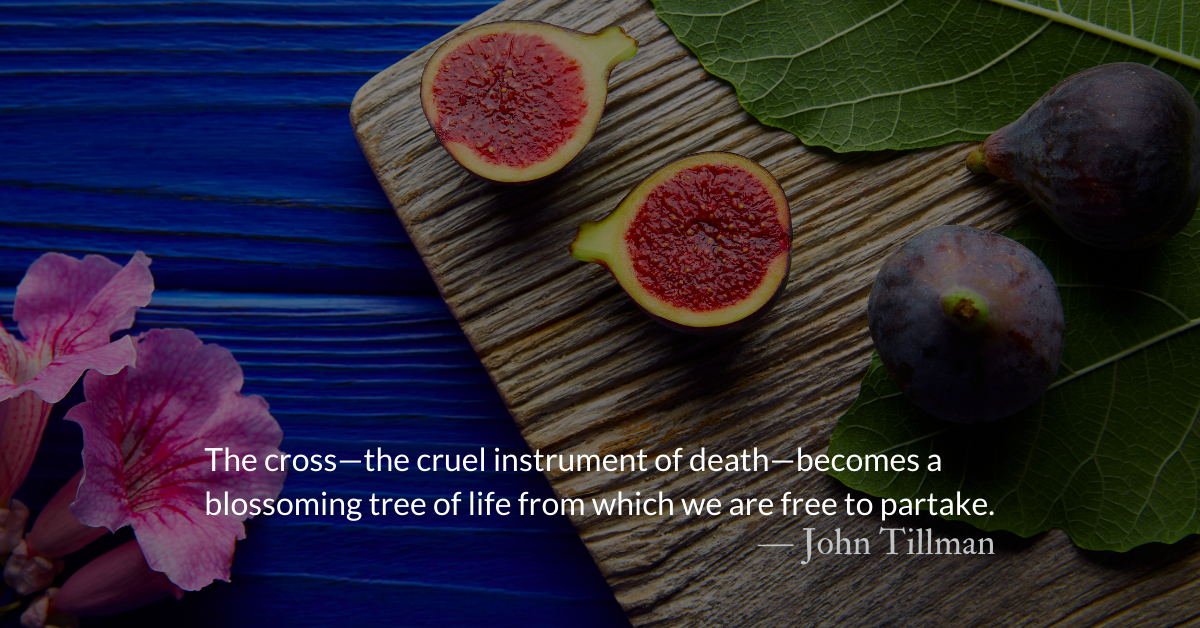Scripture Focus: Job 21.2-3, 7
2 “Listen carefully to my words;
let this be the consolation you give me.
3 Bear with me while I speak,
and after I have spoken, mock on.
7 Why do the wicked live on,
growing old and increasing in power?
Psalm 31.5. 9-11
5 Into your hands I commit my spirit;
deliver me, Lord, my faithful God.
9 Be merciful to me, Lord, for I am in distress;
my eyes grow weak with sorrow,
my soul and body with grief.
10 My life is consumed by anguish
and my years by groaning;
my strength fails because of my affliction, s
and my bones grow weak.
11 Because of all my enemies,
I am the utter contempt of my neighbors
and an object of dread to my closest friends—
those who see me on the street flee from me.
Reflection: Crushing Bruised Reeds
By John Tillman
The rising rancor between Job and his friends would have cooled if they were willing to soften their absolutisms.
Job’s friends declared that scripture was clear: “God always cuts short the wicked! God always blesses the righteous!” Job pointed to prosperous wicked people and said, “not always.”
Job’s friends refused to moderate their positions or admit to a complex and nuanced world. They doubled down and denied, growing harsher in their words instead of softer. They lumped Job in with the wicked because of his arguments. It all feels very familiar…
“In essentials, unity. In non-essentials, liberty. In all things, charity.”
Rupertus (Peter) Meldenius, a seldom remembered theologian, wrote this in the midst of a seldom remembered war. (It’s often attributed to more well-known names who quoted it, such as John Wesley. In fact, I nearly attributed it to Wesley before looking it up to check my memory…)
Meldenius called for Christian unity during the 30 Years War (1618–1648), a semi-religious conflict. At this time, all governments were inherently religious in nature. (It can be easy to forget how new the ideas of separation of church and state and religious freedom are.) The conflict was mostly political violence painted with religious veneer. Similarly veneered violence still happens. The violence of the January 6th insurrection still rings in our ears and the hostage situation at Beth Israel was a mere six miles from my front door.
Meldenius was on to something. He would recognize our political and religious landscape and the potential horrors it could lead to. However, Meldenius’s statement loses efficacy as people add more and more issues to the “essentials” pile.
When everything is “essential” there is no “liberty” and “charity” is called “heresy.” Christian leaders seem to be less and less willing to grant liberty to one another on any issue. Camps are moving farther apart and rancor has risen to the point that some decry religious freedom as “supporting hell.”
We do not need to abandon essentials to charitably embrace those in distress who struggle to define “essentials.” (Psalm 31.9-10) They need love, not contempt. (Psalm 31.11)
May we not snuff out smoldering wicks of faith with non-essential dogma or crush bruised reeds with a bootheel of “tough love.” (Isaiah 42.3; Matthew 12.20-21) May we use cords of loving-kindness to lead people to repentance rather than tie up heavy loads on the backs of the struggling. (Hosea 11.4; Matthew 23.4)
Divine Hours Prayer: The Request for Presence
Save me, O God, for the waters have risen up to my neck. — Psalm 69.1
– From The Divine Hours: Prayers for Autumn and Wintertime by Phyllis Tickle.
Today’s Readings
Job 21 (Listen – 3:05)
Psalm 31 (Listen – 3:11)
Join us! Walk through the Bible with us…
What will you hear in God’s Word this year? Share this subscription link with friends, family, or your community of faith.
https://mailchi.mp/theparkforum/m-f-daily-email-devotional
Read more about Responding to Political Violence
Despite our sense of moral superiority, we have not advanced beyond violence for political ends.












